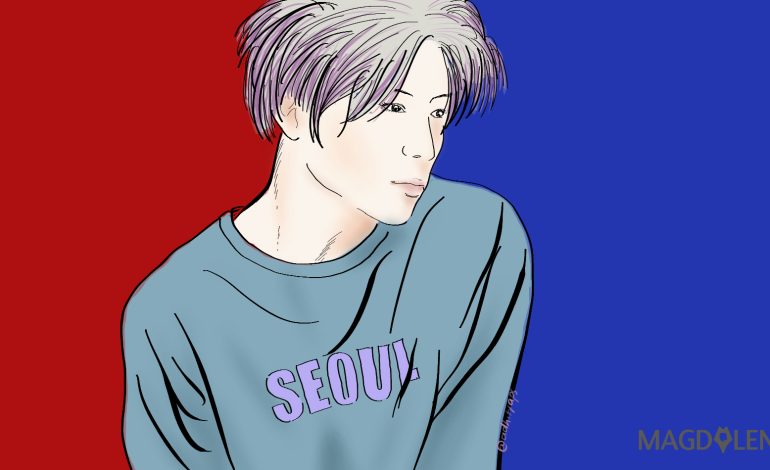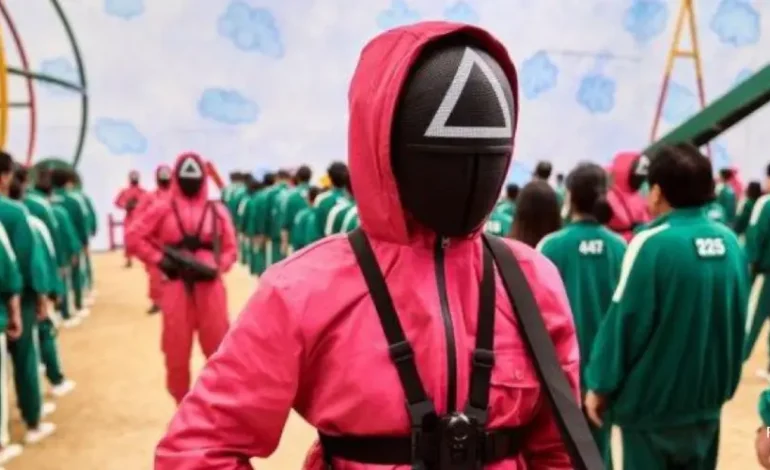How Ted Lasso Makes a Believer Out of All of Us

There’s one scene in season 1 episode 8 of the Apple TV series Ted Lasso that made me realize I was indeed watching something special. In it, the titular character monologues about how he used to be bullied when he was a kid, and how much it upset him even after he became an adult. But one day when he was dropping off his son at school, he saw a Walt Whitman quote painted on the wall of his son’s school that said: be curious, not judgmental. As he nonchalantly throws darts onto the board to best his opponent, he goes on to say, “All of a sudden it hits me, all them fellas that used to belittle me, not a single one of them was curious. You know, they thought they had everything all figured out, so they judged everything. They judged everyone.”
That scene was one of the greatest scenes not just in the series but in television history, and it resonated so deeply with me. You see, I like to think that I am a curious person, but sometimes bad things in life get in the way of my curiosity. I get hurt, and I stop being curious. Instead, I become judgmental. I judge all kinds of things, people, and even things that people love. I judge everything. I judge everyone.
The Walt Whitman quote that Ted uses to school a character who is being a prick to his ex-wife (I purposely choose not to give out more details so as not to spoil the series) is essentially what the series is all about. It is an invitation for its audience to be curious, and not judgmental. Ted Lasso chooses to be curious. As an American football coach from Texas hired to coach a different kind of football across the Atlantic, it’s too easy for Ted Lasso to be judgmental. But the series, and by extension, Ted Lasso the character, never does.
Ignorant as Ted Lasso is on English football, it is his curiosity that helps him to continue to humble himself and learn: from his assistant coach, from his players, from everyone in and around the club, and even from the fans who yell obscenities at him. He is so endearing that you just can’t help but root for him, as journalist Trent Crimm from The Independent notes when he writes an in-depth piece on the coach. It is because Ted chooses to be curious, he continues to grow.
Also read: Schitt’s Creek and the Value of Growth, Kindness, and Nuance
Growth in this series, however, doesn’t just happen to Ted Lasso, and it definitely doesn’t just happen because of him. Just like in real life, it takes more than one person to shape and impact our lives in such a way that we grow for the better. As we can see throughout both seasons, all the characters grow and develop through interacting and learning from one another. Being curious, instead of judgmental.
Another thing that speaks to Ted Lasso’s commitment to be curious, and not judgmental is the way a female friendship is written in the series. The friendship between Rebecca Welton as the strong, successful owner of the club and Keeley Jones, who starts out in the series as the girlfriend of one of the players, is something you wish gets depicted more often because it’s the sort of female friendships that naturally occur in real life. Pop culture often tries to convince us that female friendships are sinister, passive aggressive and dripping in competitiveness. It’s rarely the case, actually, and it’s nice to see an organic, easy friendship form between two women who respect each other, one in which the people involved cherish the things they have in common as well as appreciating each other’s differences.
It also helps that the female characters in this series are written with such thoughtfulness and respect that they are every bit as complex and interesting as the men, with equally rich inner lives. Rebecca can easily become a stereotypical bitter, vengeful bitch, yet she ends up becoming so human and relatable that you forget that in the beginning we want to categorize her as a villain.
Despite being beloved by most, Ted Lasso did draw criticism for “being too nice and saccharine”, a criticism that I personally have a problem with. Instead of nice, I would describe this series as kind and thoughtful. And considering how messed up the world is right now, I think we do need to make a conscious effort to be kind and thoughtful. There’s already too much darkness in the world. And as we go deeper into season 2 we also see that Ted Lasso’s sweet charm and kind demeanor actually comes as a response to a really dark thing that happened in his life. This gives more depth not just to his character but to the kindness of this series. We know Ted is the way he is because he is making a conscious choice to be a good person, a kind person, a person who refuses to see anything but the best in others. It is inspiring, but at the same time, also a little sad.
Also read: The Legacy of Elle Woods: Revisiting ‘Legally Blonde’ on Its 20th Anniversary
The series keeps asking him to make that choice too, season 2 comes to a close. What kind of a person will you choose to be when bad things happen to you, and more importantly, what kind of a person will you choose to be when good things happen to you? In the second season, we see good things happening to one of the main characters that starts out as an underdog. It’s interesting to see this person as he evolves from being a timid person who can’t even ask a restaurant hostess for a table at the window, to being a person so ambitious he’s willing to ruin the reputation of a good man just to get ahead.
As shocking as that development might seem, the series has done such an excellent job in crafting his character that you fully understand the trajectory and why he has made the choice that he made. We still don’t like the choice that he has made, but we understand the motivation behind it. In essence, the series has injected so much humanity into each of the characters that they are no longer just fictional characters to us. They are all of us.
In season one, as Ted sits down with Trent Crimm of The Independent over some spicy Indian food, Ted explains that for him, success isn’t about the wins and the losses. “It’s about helping these young fellas to be the best version of themselves on and off the field,” he adds with a charming earnestness that only actor/writer/co-creator Jason Sudeikis can pull off.
Yes, Ted Lasso may seem too kind, too earnest, and too saccharine for your taste. But after going through a dumpster fire kind of year (that somehow still keeps on going), I think we all need a series that will remind us that sometimes we just need to believe: in ourselves, in each other, in hope, and yes, even in “believing”.






















